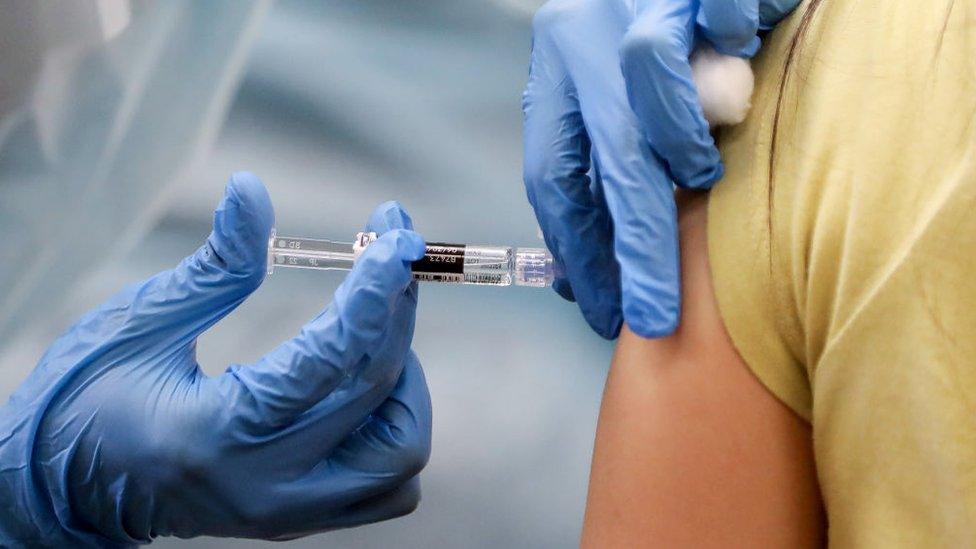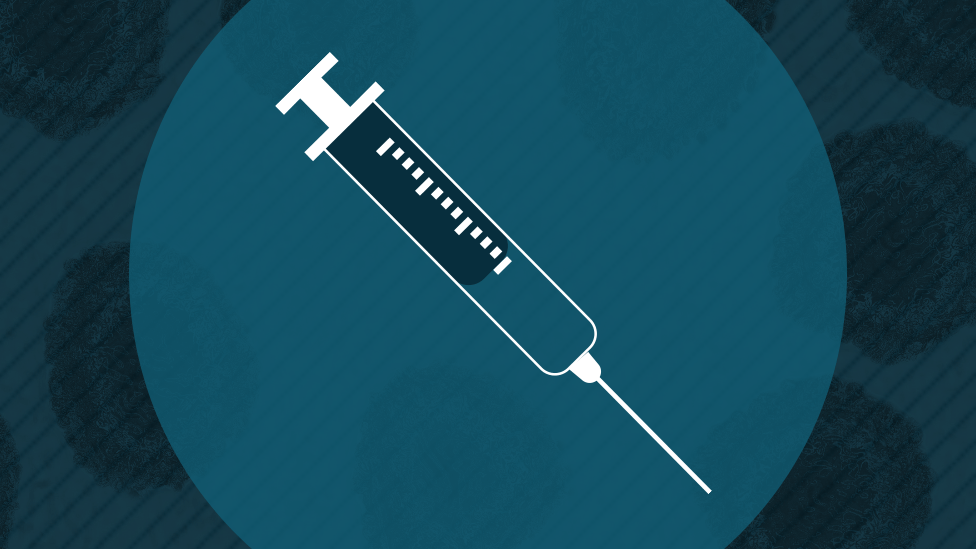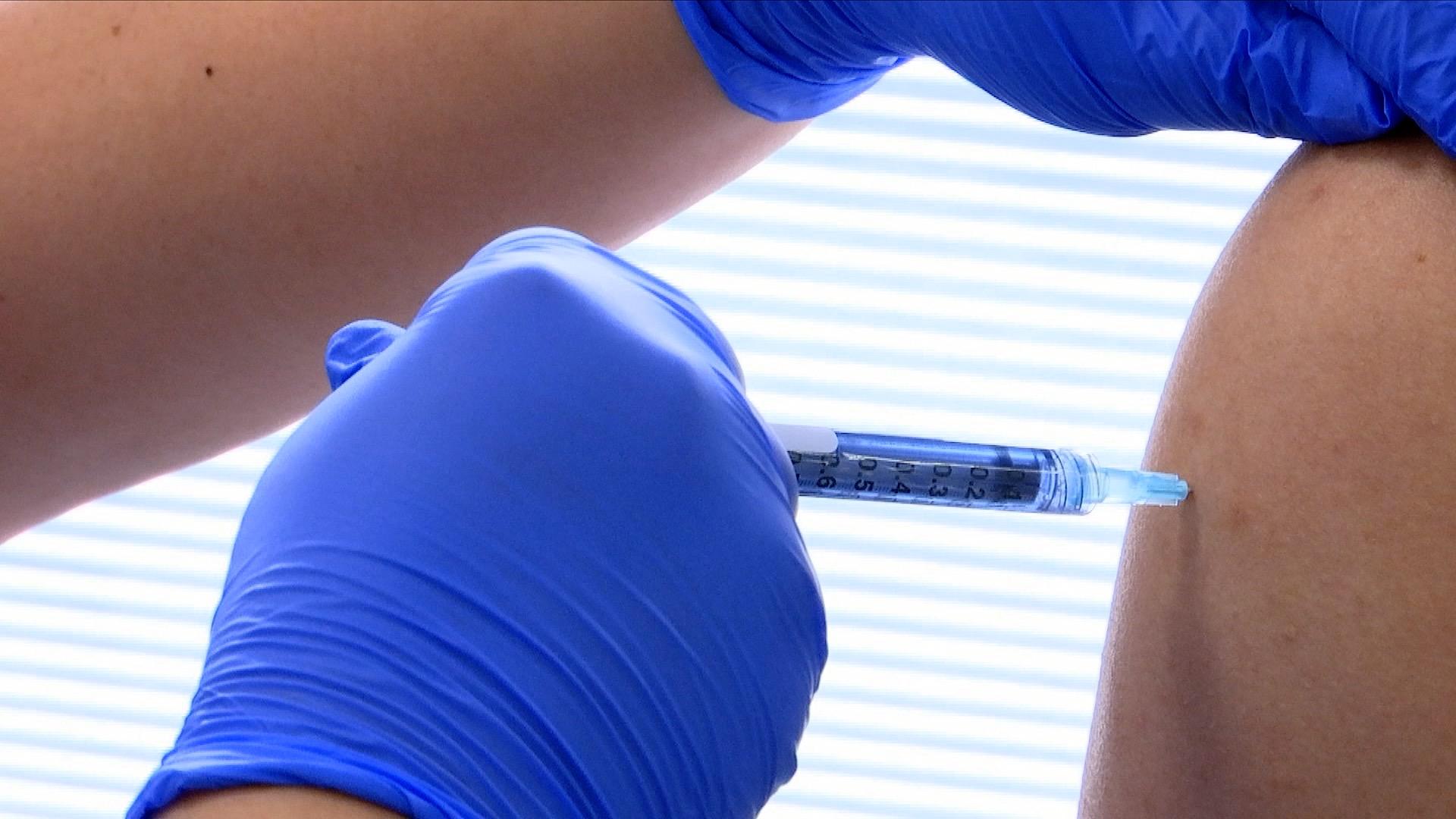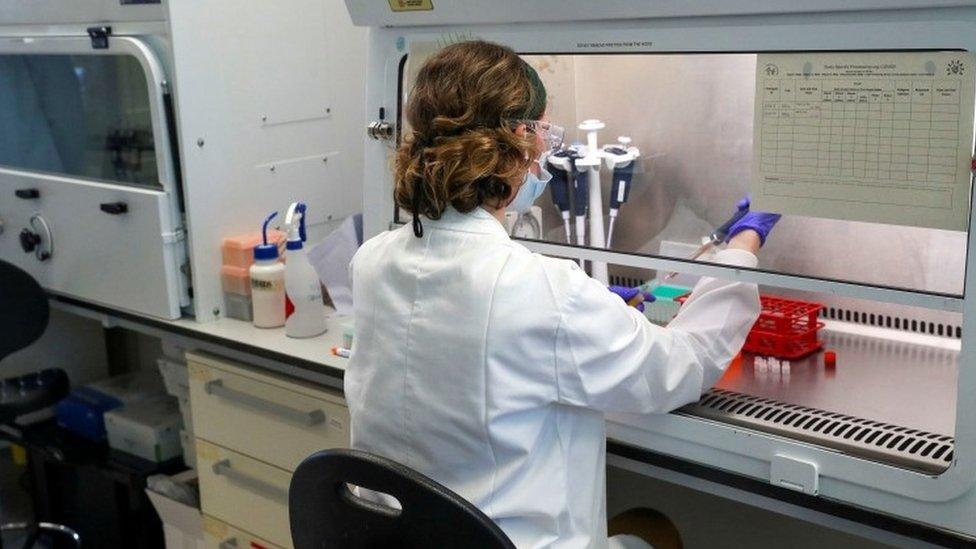Covid-19: Most vulnerable 'could get vaccine by Christmas'
- Published

Kate Bingham has warned that a vaccine is unlikely to protect everyone from infection
A Covid vaccine could be given to some of the most vulnerable people "this side of Christmas", according to the chairwoman of the UK Vaccine Taskforce.
But limited supplies would mean the government would have to decide who should get it, and when.
Kate Bingham also said a vaccine will not be "a silver bullet" that would allow life to get back to normal overnight.
And she warned that it was unlikely to protect everyone from infection.
Ms Bingham said she was optimistic that a vaccine would be found that would "protect some people from infection and can reduce the severity of symptoms".
But she said it was "very unlikely" to be a single jab and that ongoing revaccination would be needed - probably every few years.
Speaking to BBC Scotland's The Seven, she there would initially be a "limited supply" of any vaccine that was developed, meaning that not everybody would get it.
There would therefore need to be a decision reached by the government and the Joint Committee on Vaccination and Immunisation (JCVI) about who should be vaccinated and when.
The JCVI has already advised that vaccine distribution should be prioritised by need, with care home staff and the elderly population first in the queue.
There are currently hundreds of vaccine trials being carried out around the world, including six possible vaccines that are being developed in the UK.

Governments will need to decide which groups are given access to any vaccine first
However, Ms Bingham said it was important to manage expectations about what a vaccine could really change.
She said: "These are not going to be silver bullet vaccines and everyone gets back to work as normal on 1 January.
"It's going to take time, we're probably going to need more than one vaccine for different populations."
When can we get back to normal?
Ms Bingham said it was difficult to put an exact date on when normal life could resume - especially without knowing what type of vaccine will be available, how many doses will be needed, how effective it might be and which age group it might work best in.
"There's a real sense of when can we get back to normal? Of course that's what I hope will happen, but we don't have the data to be sure that that will happen and it also won't be overnight."
One worry, she said, is that work on a vaccine would have to start again from scratch if the virus was to mutate sufficiently in the future.
But she was hopeful that by 2022 there would be no need for people to wear face masks, and was more confident that we could be bringing in 2022 with family gatherings and parties.
People may also be able to go on summer holidays next year, she predicted - although it might not be easy to go by air, depending on how effective any vaccine is.
The UK government has said it wants "as many people as possible to access a Covid-19 vaccine" while the Scottish government has said "work is well in hand to ensure we are ready to deploy a coronavirus vaccine when it arrives".


- Published1 October 2020

- Published28 May 2021

- Published25 September 2020

- Published12 September 2020
